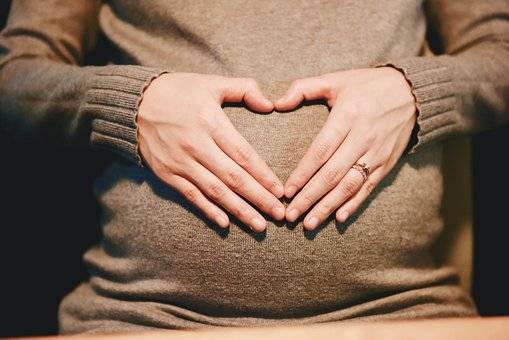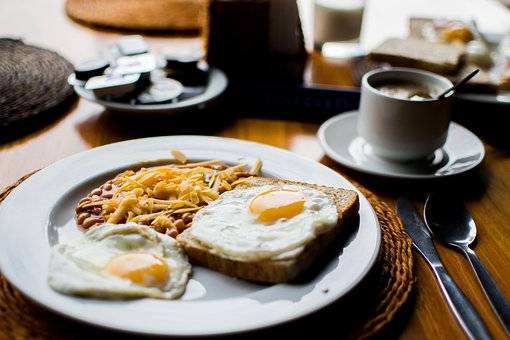A woman’s body undergoes multiple changes when a child grows. This is when doctors and elders want the same to take care of themselves and the baby growing inside. However, iron deficiency during pregnancy has become common among modern would-be mothers.
Research shows that around 30% of women of reproductive age are prone to anemia internationally. And anemia during pregnancy stands at a number of 38%. Several risks are attached to a woman continuing her pregnancy and having low iron levels simultaneously. Not only the life of the new mother is at risk, and research indicates that the fetus can undergo various problems with its development part. Talking about the issues, it can hamper the brain structure of the newborn, causing a rapid expansion of the same. Which ultimately will affect gene expression, differentiation of cells, and neuronal growth.
At the growing-up stage, severe iron deficiency during pregnancy affects babies with cognitive impairments like autism, learning disabilities, and attention deficit syndrome.
Why is it essential to knock out iron deficiency during pregnancy?
A body rich in iron will produce more blood, which is necessary for the would-be mother. Because the produced blood will get divided into two parts between the mother and the developing fetus.

A pregnant woman requires 30 mg of iron (elemental) daily. That will help them meet the extra need for blood by the fetus inside and the placenta (developing). If you are wondering what will happen to the remaining part, then the same will enhance the blood flow within your circulatory system. In the end, this will help you during childbirth. For a vaginal delivery, you will lose 500ml, while it is 1000ml for a C – section. With low blood levels, you will face unwanted complications while proceeding with delivery and during the postpartum period.
Signs of iron deficiency during pregnancy
Here is what iron deficiency during pregnancy looks like:
- Weakness
- Fatigue
- Headache
- Dizziness
- Yellowish or pale skin
- Shortness with breath
- Heart beating fast
- Difficulty with concentration levels
- Blood pressure running low
Effects of iron deficiency during pregnancy
Moving on with the effects part, let’s help you dive deep into the matter. Here is a detailed overview of scientifically proven discrepancies curated by gestational iron deficiency (GID) on the newborn’s health.
Iron deficiency and cognitive impairment
The researchers utilized the nutritional GID mouse model to find answers to the underlying problem of iron deficiency and cognitive impairment. During the ongoing research, they went on to test the brains of both the adult mice and their offspring. However, the results stood as disruptive in terms of the interneurons.
Now, if you are wondering what an interneuron is? Then to be precise, it stands as the cell which does help the brain respond in the right way to incoming signals. Also, the same is effective in controlling neuron inhibition and excitation. On a closer look at the brain, these interneurons develop within that part of the brain known as the medial ganglionic eminence. Now the cell fate of the Neuronal progenitor depends on this region, where the progenitor matures to become neurons and finally develops into a cortex.
Looking at the brain structure of the model GID mice, the researchers did find the neuronal progenitor cell to be underdeveloped or, specifically speaking, impaired. Thus suggesting that this can lead to a faulty network of neurons, which adds up to cause problems for a lifetime.
However, similar findings have not yet been confirmed within humans, and scientists are planning on a human-based model to find out the impact of GID.
The human model is in the making
After a successful exhibition of the mouse model, Salois, a graduate student, works on establishing the iron-deficient human brain. For this, they use a mass of cells – brain organoids, representing the human brain. The researchers are calling these the “mini-brains,” which can be studied under the microscope. Now the researchers aim to mimic the growth of the neuronal progenitor GID cells, with similar traits to that of the mouse.
The researcher developer, Mayer-Proschel, exclaims that the model will help her find differential cellular targets for the GID absent in the mouse model. By conducting a detailed analysis of these newly found cellular targets, the scientists will be able to rethink the prevalent organization of maternal health. They will also be able to come up with alternative approaches to combat iron deficiency other than iron supplements themselves.
How to combat iron deficiency during pregnancy?
Let’s help you revitalize your iron levels and combat that deficiency you have been fighting with so far:
- Intake loads of meat, eggs, fish, chicken, fortified grains, and dried beans. Iron present in meats gets easily absorbed by the human body in comparison to the ones present in vegetables.

- Also, have foods that are rich sources of folic acid. These include wheat germ, dried beans, orange juice, and leafy vegetables (dark green).
- Cooking your daily meals in cast iron pots will increase the chances of 80% more iron getting added to your food.
- Moreover, do not forget to intake your multivitamin pill that has extra folate.
- You can have food rich in vitamin C, like tomatoes, kiwi, bell papers, melon, and strawberries.
The sound health of a pregnant mother helps her with a seamless birth experience. There are a lot of replications of what goes inside your body as you have a new life added to you. So, make wise choices and look at things from a greater perspective. That will add to the overall health of your baby.



